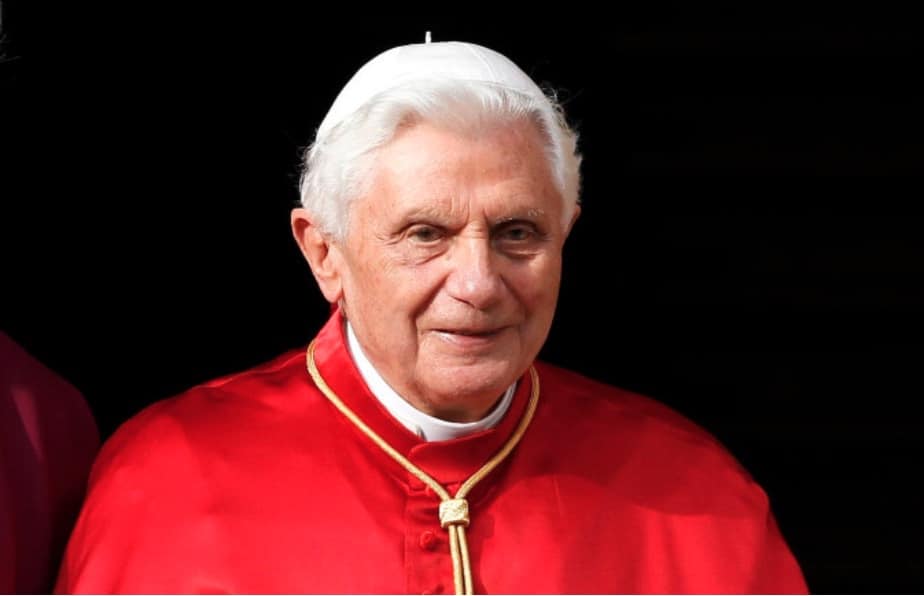
Pope Benedict XVI (1927-2022), born Joseph Aloisius Ratzinger, was a German theologian and pope from 2005 to 2013, known for his intellectual depth, conservative theology, and unprecedented resignation, leaving a lasting mark on the Catholic Church.
Born Joseph Aloisius Ratzinger on April 16, 1927, in Bavaria, Germany, he became Pope Benedict XVI on April 19, 2005, following John Paul II’s death, and served until his resignation on February 28, 2013. A renowned theologian, he was the first German pope in over 1,000 years and lived until December 31, 2022.
Ratzinger grew up in a devout Catholic family, but his youth was marred by Nazi rule, during which he was forcibly enrolled in the Hitler Youth and later drafted into the German army, though he deserted in 1945. After World War II, he pursued theology, ordained in 1951, and became a respected professor known for his intellectual brilliance.
Ratzinger rose through the Church as a theological advisor at Vatican II, became Archbishop of Munich in 1977, and was named Prefect of the Congregation for the Doctrine of the Faith by John Paul II in 1981, earning a reputation as a doctrinal guardian. After John Paul II’s death, he was elected pope at age 78, taking the name Benedict XVI to honor St. Benedict and Pope Benedict XV.
Benedict XVI resigned on February 28, 2013, citing declining health and strength, becoming the first pope to step down since Gregory XII in 1415, a decision that stunned the world. He spent his remaining years in quiet retirement at the Mater Ecclesiae Monastery in the Vatican, living as “Pope Emeritus” until his death in 2022.
Benedict authored three encyclicals—Deus Caritas Est (2005) on love, Spe Salvi (2007) on hope, and Caritas in Veritate (2009) on charity and truth—along with numerous books like Jesus of Nazareth. His works emphasized faith, reason, and the Church’s role in a secular world, reflecting his scholarly roots.
Benedict XVI championed the harmony of faith and reason, critiquing relativism and secularism, as seen in his 2006 Regensburg Address and earlier writings like “The Dictatorship of Relativism.” He sought to renew Catholic liturgy and doctrine, emphasizing the Church’s intellectual tradition rooted in Augustine and Aquinas.
His papacy faced scrutiny over the Regensburg Address, which sparked Muslim backlash, and the clergy abuse scandal, where he took steps like defrocking priests but was criticized for not doing enough earlier as prefect. Despite these, he worked to clarify misunderstandings and strengthen Church governance, showing a blend of firmness and humility.
Benedict engaged modernity with a critical eye, opposing secularism’s exclusion of faith while fostering dialogue with science and culture, as in his meetings with agnostics at the “Courtyard of the Gentiles.” He traveled less than John Paul II but used his intellect to defend Christian values against relativism, earning both praise and critique.
Benedict’s emphasis on liturgical beauty led to the 2007 motu proprio Summorum Pontificum, reviving the Traditional Latin Mass, while his writings deepened Catholic theology for a secular age. His resignation reshaped the papacy’s image, showing it as a role of service, not just power, influencing his successor, Francis. His conservative stance solidified doctrine amid internal debates.
Benedict XVI’s legacy lies in his intellectual rigor, bridging faith and reason in a way that challenged both secular and religious extremes, as seen in his Regensburg Address and encyclicals. His resignation marked a historic shift, normalizing the idea of a pope stepping down, while his writings continue to guide Catholic thought. Known as the “Pope of Reason,” he countered relativism with a vision of truth rooted in God. His quiet retirement and death at 95 in 2022 cemented his image as a humble servant, contrasting with his earlier “Panzer Cardinal” nickname. His influence endures in theology, liturgy, and the Church’s modern identity.